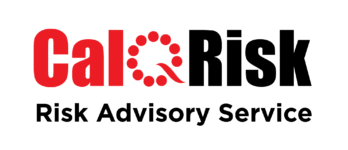Are we there yet… are we there yet? Almost!
Final approval of the Omnibus I package may take several weeks while the European Parliament, Council and Commission complete the trilogue process. However, the expectation is that there are unlikely to be any significant changes. Good news for organisations that have been working on their Corporate Sustainability Reporting Directive (CSRD) requirements ahead of the agreement—they should find that the work they have already done remains valuable.
In summary, the 5 key impacts of the Omnibus I package, as it currently reads relating to the CSRD are:
-
Fewer Companies will be Legally in Scope
The Omnibus I package raises reporting thresholds. For example, in scope companies would have more than 1,000 employees. Combined with an increase to €450m of the annual turnover threshold, this would mean that many SMEs and mid-sized firms will fall out of mandatory reporting.
Impact: Smaller companies get breathing space, while large corporates remain squarely in scope.
Even if yours is an organisation that finds itself out of scope after the dust settles, you may well be part of the supply chain of one or more in-scope organisations to which you will have to divulge sustainability information. Where this is the case, we suggest you utilise the Voluntary Standard for SMEs (VSME). Adopted and recommended by the European Commission, the VSME was developed as a means of reducing the administrative burden for SMEs in responding to sustainability data requests.
-
Delayed Timelines — “Stop-the-Clock”
Implementation waves are pushed back by up to two years for later cohorts. Early adopters can use transitional relief measures.
Impact: Companies have more time to prepare systems, governance, and data collection — shifting reporting from reactive to strategic
-
Simplified Reporting Standards (ESRS)
Mandatory disclosures are reduced, and sector-specific standards are postponed. This means fewer data points and less technical complexity in the short term.
Impact: Lower compliance burden, particularly for companies with limited ESG reporting capacity.
-
Assurance Remains Limited… for now.
The planned move to reasonable assurance is delayed. Limited assurance remains the standard in the near term.
Impact: Reduced audit and assurance costs and complexity, buying companies time to strengthen internal controls before higher assurance kicks in.
-
Narrower Value Chain Reporting Requirements
Companies can focus on direct business partners rather than the entire value chain immediately, with extended review cycles.
Impact: Easier supplier engagement and data gathering — though indirect impacts will likely come into play later as expectations evolve.
The Bottom Line: The Omnibus I package isn’t a rollback of CSRD but rather a recalibration. Companies get more time, flexibility, and focus. However, market expectations for transparency remain high.
Whether your organisation remains in scope or not, transparency on sustainability performance is here to stay.
GreenFeet by calQrisk helps you measure, manage and report your emissions in line with evolving standards — supporting confident, data-driven disclosure.
Discover GreenFeet
If you would like to have a VSME Checklist added to your CalQRisk environment, get in touch with your account executive or a member of the Helpdesk team.









